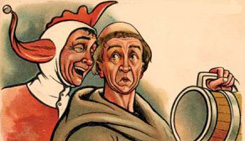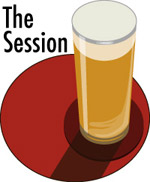 Asking questions should be a good thing. Jack Curtin comes up with some good ones.
Asking questions should be a good thing. Jack Curtin comes up with some good ones.
He asks: Can I say something about Randall the Enamel Animal that will piss a lot of people off? As the Dogfish website explains, Randall 3.0 is “a sophisticated filter system that allows the user to run draft beer through a chamber of whole leaf hops, spices, herbs, fruit, etc. so that the alcohol in the beer strips the flavor from what every you add and puts it in the beer.”
Curtin offers a different view, writing “It’s neat to play with and all that, but it has squat to do with brewing beer. Indeed, it is intended to supplant and override the flavor and nature of a beer that has been brewed.”
Wait. There’s more. “Gimmicks are fine for a passing moment, for a brief moment of fun, but they suck in the long run. Changing the nature of the beer which comes out of the kettle in the manner of its serving is demeaning to the whole process of brewing. It is the antithesis of what craft brewing was supposed to be all about.”
Gets you thinking doesn’t it? However, I can’t endorse a blanket condemnation of Randall & Associates any more than I favor mindless worship at the altar of change. After all, Dogfish founder Sam Calagione first rolled out Randall 1.0 to showcase his own beer. How is that different than a British brewer dry-hopping a cask?
Logically, you can draw a line between what amounts to a brewer extending what he does in the brewhouse and a publican mangling a brewer’s intentions by adding flavors at the bar. But aren’t “beer cocktails” all the rage? They blend not only beers from a single brewery, but cross the streams and even include other fermentables. Blurs the line. Makes it clear this is no simple question — all the more interesting to consider.
 The Beer Wench has asked us to write about
The Beer Wench has asked us to write about